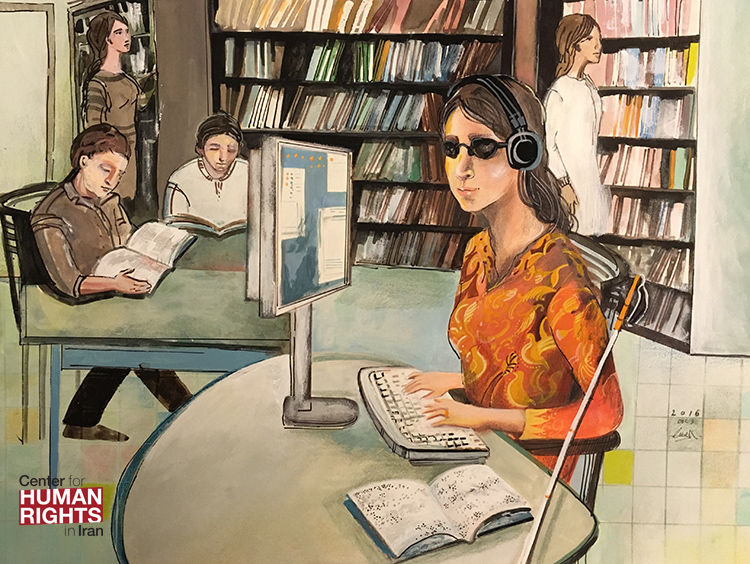Iran’s Parliament Should Pass Pending Disability Rights Bill
 New Law Needed to Protect Rights of Iran’s Long-Neglected Disability Community
New Law Needed to Protect Rights of Iran’s Long-Neglected Disability Community
November 30, 2017–New legislation currently pending in the Iranian parliament will, if passed, strengthen the basic rights of Iran’s persons with disabilities community. The Center for Human Rights in Iran (CHRI) marks the upcoming International Day of Persons with Disabilities, December 3, by urging Iranian lawmakers to pass this vital legislation.
“People with disabilities in Iran have long been subjected to social stigma and governmental indifference to their needs,” said CHRI’s executive director, Hadi Ghaemi. “It is high time their rights are protected in line with international standards.”
Iran ratified the UN’s Convention on the Rights of Persons with Disabilities (CRPD) in 2009, but its domestic laws and practices are still not compliant with the treaty’s recommended standards. Persons with disabilities in Iran are denied adequate access to transportation, public spaces, facilities, and buildings, as well as effective access to governmental services, education and legal protections in the justice system. They also face severe employment discrimination.
Iran’s State Welfare Organization, the main governmental body responsible for providing services to persons with disabilities, provides minimal aid only to some 1.3-1.5 million people out of a disability community that some members of Parliament put at more than 11 million in Iran, due to rigid inclusion criteria that excludes all but those with the most severe disabilities.
“Without broadening their definition of ‘disability,’ millions of persons with disabilities in Iran will not be able to benefit from state services or any new legislation,” noted Ghaemi.
The 53,000 tomans ($15.50 USD) monthly stipend that the Welfare Organization offers as financial assistance to a small fraction of the disability community doesn’t cover their basic needs, and state insurance also excludes many needed medical treatments and rehabilitation services.
The new draft bill has not been published for public review, but CHRI was able to obtain a copy of the latest version.
It requires that municipalities deny building licenses for construction sites failing to provide facilities accessible to people with disabilities, and extends the national health insurance’s coverage of medical and rehabilitation services to this community.
It also calls for the creation of a fund to help persons with disabilities find employment while providing incentives to encourage employers to hire them. Rights experts estimate unemployment among the disability community in Iran is three and a half times higher than the rest of the population.
However, the bill does not include any provision for services and legal mechanisms to help protect persons with disabilities from violence or abuse. It also does not reference the need for inclusive, accessible education, especially for children with intellectual or psychosocial disabilities, or address the widespread negative stereotypes of persons with disabilities on state media in Iran. Nor does it provide effective enforcement mechanisms or remedy for violations.
In 2015, the Rouhani administration prepared an earlier bill, implementing one part of it, the General Plan for the Protection of the Disabled, as an executive order and sent the remainder to Parliament. It was approved but the Guardian Council, which vets all laws, sent it back to Parliament on procedural grounds. Earlier, Parliament passed the Comprehensive Law to Protect Disabled Persons in 2004, but it was not fully implemented by either the Ahmadinejad or Rouhani administrations. In 2017, a committee of MPs and representatives from Iran’s Welfare Organization introduced the current bill.
“These legislative delays reveal the Iranian authorities and lawmakers have not prioritized the protection of the rights of people with disabilities,” an Iranian disability rights activist told CHRI.
According to an online campaign in Iran to encourage the adoption of the draft disabilities right bill, further delay on this bill would result in serious adverse effects on the lives of the disabled.
“Persons with disabilities should no longer be treated as objects of charity in Iran,” said Ghaemi. “These are citizens equal to any other and their basic rights must be defended,” he said.





